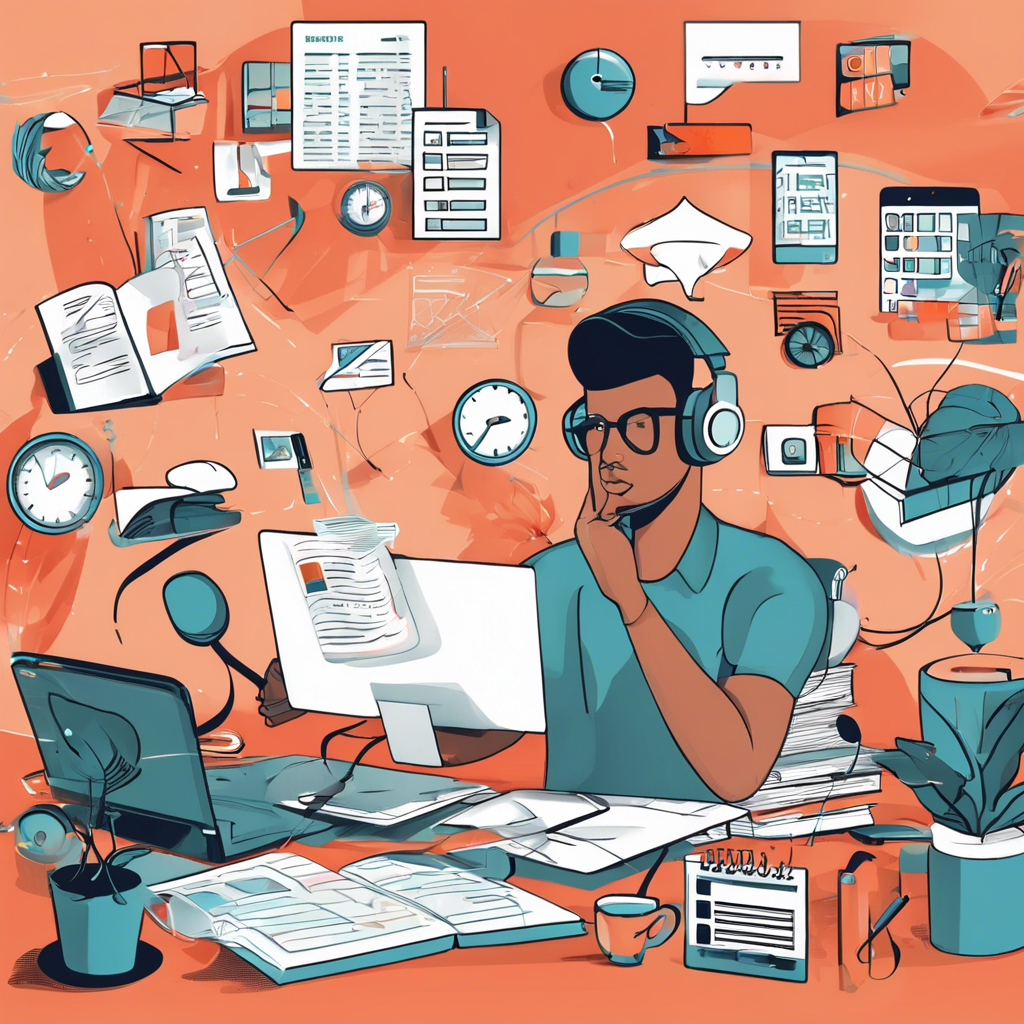Staying focused in a world filled with distractions is one of the greatest challenges of modern life. From social media notifications to emails, background noise, and internal thoughts, distractions are everywhere. The ability to concentrate deeply on a task is crucial for productivity, creativity, and success. Yet, many people struggle to maintain their focus, often jumping from one task to another without making meaningful progress. Understanding how to eliminate distractions and sharpen concentration can transform not only work performance but also personal growth.
One of the most effective ways to improve focus is by creating a distraction-free environment. The physical space where work is done significantly impacts the ability to concentrate. Clutter, noise, and interruptions can make it difficult to maintain attention. Organizing the workspace, keeping it clean, and eliminating unnecessary items help reduce mental clutter. Using noise-canceling headphones or playing background music designed for concentration, such as classical or ambient sounds, can block out external distractions. Additionally, choosing a quiet place to work and informing others about the need for uninterrupted time can make a significant difference.
Digital distractions are among the biggest obstacles to staying focused. Smartphones, social media, and constant notifications pull attention away from important tasks. One of the most effective strategies for dealing with digital distractions is setting specific times for checking emails and social media instead of responding to them immediately. Using apps and browser extensions that block distracting websites can help maintain focus. Putting the phone on silent mode, using the “Do Not Disturb” feature, or even keeping it in another room while working can prevent the temptation to check messages and notifications.
The brain’s ability to focus is influenced by energy levels, which are affected by sleep, nutrition, and exercise. Poor sleep quality reduces concentration and increases susceptibility to distractions. Establishing a consistent sleep routine, avoiding screens before bedtime, and practicing relaxation techniques can improve sleep and enhance focus during the day. A balanced diet rich in brain-boosting foods such as leafy greens, nuts, and omega-3 fatty acids supports cognitive function. Regular physical activity, even a short walk, can improve mental clarity and reduce stress, making it easier to concentrate.
Multitasking is often mistaken for productivity, but in reality, it decreases efficiency and focus. The brain is not designed to handle multiple tasks simultaneously; instead, it rapidly switches between them, reducing the quality of work and increasing mental fatigue. Practicing single-tasking, where full attention is given to one task at a time, leads to better results and improved efficiency. Breaking tasks into smaller steps and setting specific goals for each session can make focusing easier and more rewarding.
Time management techniques play a crucial role in maintaining focus. One of the most effective methods is the Pomodoro Technique, which involves working for 25-minute intervals followed by short breaks. This approach helps prevent burnout and keeps the mind fresh. Setting clear priorities using the Eisenhower Matrix, which categorizes tasks based on urgency and importance, can help identify what needs immediate attention. Scheduling deep work sessions during the most productive hours of the day ensures that critical tasks are completed without distractions.
Mindfulness and meditation are powerful tools for improving focus. Regular mindfulness practice trains the brain to stay present, reducing mind-wandering and increasing awareness of distractions. Even a few minutes of meditation daily can enhance concentration and self-control. Deep breathing exercises, visualization techniques, and mindful walking are also effective in calming the mind and sharpening focus. Developing a habit of bringing attention back to the present moment whenever it drifts can significantly improve the ability to stay on task.
A strong sense of motivation and purpose enhances focus. When there is a clear reason behind a task, staying engaged becomes easier. Setting personal goals and reminding oneself of the bigger picture can reinforce motivation. Breaking larger goals into smaller, manageable steps and celebrating progress along the way provides a sense of accomplishment. Creating a reward system, where a small break or a favorite treat is given after completing a task, can reinforce positive behavior and improve concentration.
Reducing mental clutter is essential for focus. A mind filled with unfinished tasks, worries, and distractions struggles to concentrate. Writing down thoughts, making to-do lists, and prioritizing tasks can help clear mental space. Practicing journaling or brain-dumping before starting work can eliminate distracting thoughts and create mental clarity. Setting specific times for worrying or planning helps prevent these thoughts from interfering with focus during work sessions.
Social distractions can also hinder focus. Conversations, phone calls, and unexpected interruptions break concentration and make it difficult to get back on track. Setting boundaries with coworkers, family members, or friends regarding work hours and focus time can minimize distractions. Using tools like noise-canceling headphones, setting up a “do not disturb” sign, or working in a separate space can help maintain uninterrupted focus. Communicating the importance of deep work to others ensures respect for concentration time.
Improving focus is a skill that requires practice and commitment. By creating a distraction-free environment, managing digital interruptions, maintaining a healthy lifestyle, practicing mindfulness, and setting clear goals, it is possible to enhance concentration and productivity. Small changes in daily habits can make a significant impact on the ability to stay focused and achieve long-term success.

